
INSIDE THIS EDITION:
- JEWISH STYLE BREADS: A Family History by Bob Sandy
- BROWN BAG WEBINAR LECTURES SPRING SERIES
- From the Fall 2023 Memoir Class: JAY by Beth Armstrong
- Culture Corner: Providence Public Library presents CONNECTING STORIES BOOK CLUB
- Dorcas International presents INSIGHTS INTO IMMIGRATION Virtual Event – Mar 26
- Sowams Heritage Area Project hosts COMMUNITY CONVERSATIONS
Click the links to jump to the article.
Jewish Style Breads: A Family History
by Bob Sandy
During the winter semester, Bob Sandy coordinated a class on Jewish Style breads in his home. Participants used traditional ingredients to hand-make pita, sourdough, “French” bread, kaiser and egg dough rolls, challah, rye and pumpernickel breads, and bagels. Bob also provided a history of his family and their bakery.
Hungary
My Dad was orphaned at the age five. When WWI ended his father came home with tuberculosis from serving in the trenches in the Austro-Hungarian Army. At that time tuberculosis had no cure. He died a year later. His widow had to care for three children. My father was the youngest. While raising her kids, she ran the family’s tavern in a small village, Kacs. When she died in 1921, the three kids wound up staying with cousins in other towns. My father was always immensely practical. He didn’t want to go from one distant cousin’s house to another distant cousin’s house, so when he reached the minimum age for signing up for an apprenticeship, 14, he chose to become a baker’s apprentice. His reasoning was that he wouldn’t go hungry if he was surrounded by bread. Bakeries were always warm too. This was in 1929.
Apprenticeships in Hungary were subject to both government and union rules. Bakery owners loved hiring apprentices because they were cheap. The owners had to provide room and board, but no pay. My Dad wound up in the largest bakery in Budapest. It was owned by two Jewish brothers. My Dad’s “room” was the flour storage area in the basement. He slept on bags of flour. These bags were 50 kilo, or 110 pounds. His first job each day was to carry bags up the steps to the mixers. When I started to work in my Dad’s bakery, he taught me how to balance the 100 pound bags on one shoulder and walk them to the mixer. I never had to carry them up a flight of stairs. An apprentices’ job was to do everything no one else wanted to do. My Dad’s last task of the day was to balance enormous loads of baked bread on a bicycle and deliver the bread to households.
While these conditions were Dickensian, my dad liked it. The bakers' union had a sports club that let him use a scull on the Danube River and learn Graeco-Roman wrestling, which was popular in Hungary. All things considered, Dad had a favorable view of the baker's unions in Hungary.
The photo below is the Graeco-Roman Wrestling Team of the Union's sports club. The arrow points to my dad. Three interesting things can be observed in the photo. The other wrestlers have shoulder straps on their wrestling outfits. My Dad told me that he couldn't afford a wrestling outfit. Next, if you look closely at the coach in the back row center, you will see a Jewish Star patch on his jacket. This patch has nothing to do with the yellow Jewish star patches Jews had to wear after the Nazis took over Hungary in 1944. The union and its sports club were Jewish organizations, hence the Jewish star. Lastly, Graeco-Roman wrestling was invented in France in the 1840s based on images of wrestlers from antiquity on vases and in statues. Upper body strength was paramount in this type of wrestling because many of the holds in regular wrestling were not allowed. For example, you could not grab your opponent’s legs. Carrying those 110 pound flour bags helped my Dad develop the upper body muscles that are clear in the photo. 
The United States of America
After the war my mother and father left Hungary for a displaced person's camp in Germany, Bergen-Belsen, where I was born in 1947. In 1949 the three of us were able to emigrate to the United States and settle in Worcester, MA, where Dad got a job at the Widoff Bakery. This bakery was a union shop, so my dad had to join the Bakery and Confectionary Workers International Union Local 33. The "International" in its name was because the union had Canadian locals. This union was one of the earliest craft unions in the United States. It started in 1886.
After my parents became US Citizens in 1955, our family (now four with the addition of my sister) moved to Detroit, which was bustling at the time. The Big Three automobile companies were in their heyday. Again, the bakeries were union shops, so my Dad joined the local branch of the same "international" union.
My father took an active interest in his local union's affairs. He even memorized Robert's Rules of Order so that he could make proper motions at the local's meetings. Around 1965 my father bought a small bakery that was part of the local Model Bakery chain. It was at the corner of Chene and Frederick Streets in Detroit. To distinguish it from the other Model Bakeries, it was renamed the Frederick Model Bakery, after the street.
When he became a bakery owner, his views on the union soured. The five top officials of the international bakers’ union were indicted for embezzlement and conspiracy in 1958. After the AFL (craft unions) merged with the CIO (the industrial unions) in 1955, this new body expelled the bakers’ union because of its reputation for embezzling and for requiring kickbacks from employers, also in 1958. The AFL-CIO set up a rival bakers’ union that fought tooth and nail with the original bakers' union. That inter-union war lasted until 1978, when the rival bakers’ unions merged. The language in the union loyalty oath, "I furthermore promise that I will not join or render aid and comfort to any organization hostile to the Bakery and Confectionary Workers' International Union of America, and that I will keep secret the proceedings of this union", in the photo below can be understood in the context of warding off any potential rival bakers' unions.

My father working in his first US bakery, Widoffs in Worcester MA circa 1955
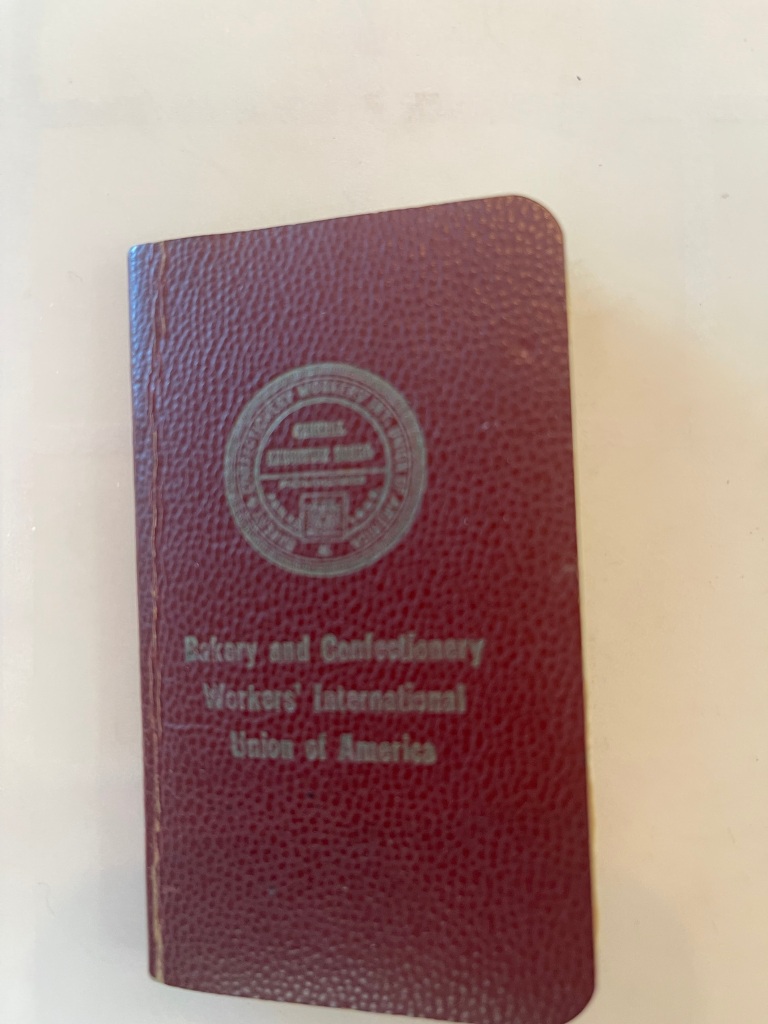
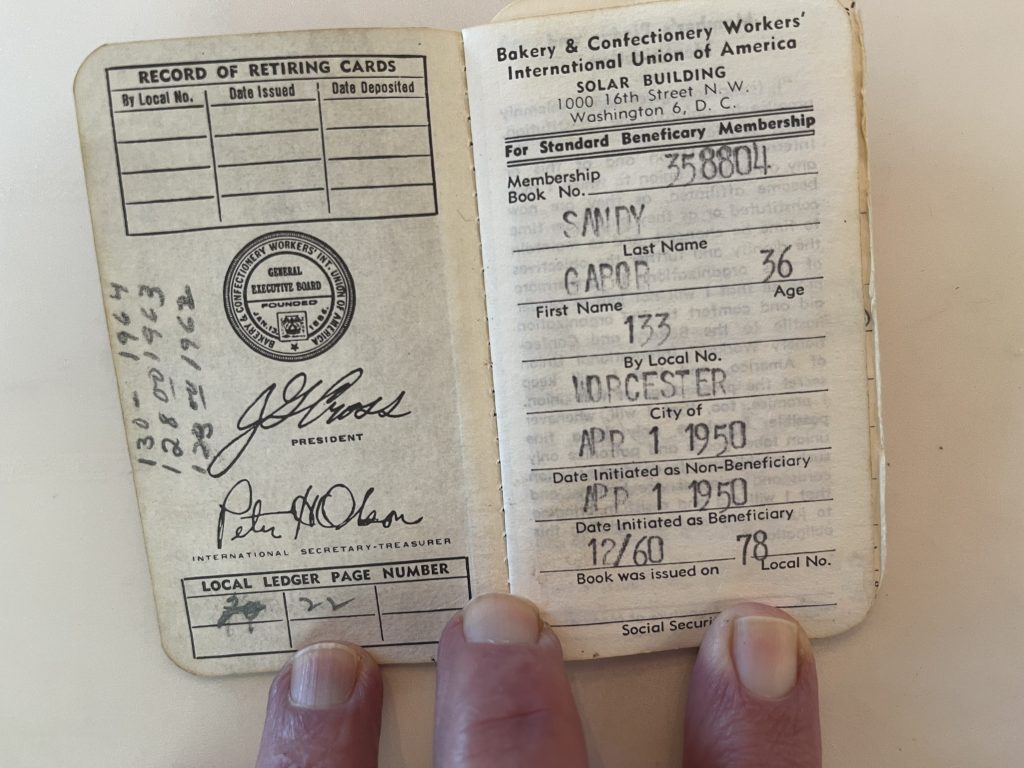
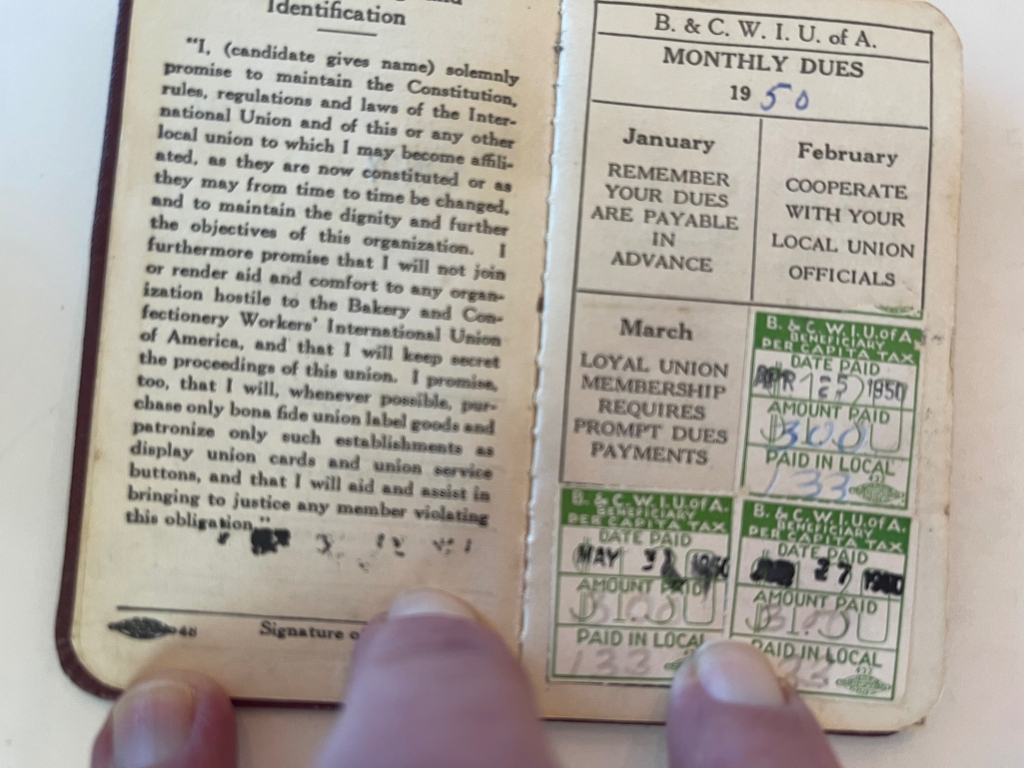
While in high school I got to repeat some of my father's experiences as bakery apprentice, albeit at not his Dickensian level. I also did the jobs that no one else wanted, such as mixing large vats of sour by hand. I got to work in many bakeries. My father wanted me to learn the business. One thing that puzzled me from my work across the town was the differences between the two union locals in Detroit that belonged to the same national union. These locals were known informally as the Jewish local and the Polish local, due to who originally had worked in them. In the 1920s you needed to speak Yiddish to be understood in one and Polish in the other. By the 1960s most of the bakers were neither Jewish nor Polish. Many were blacks. The term African Americans wasn't used back then.
What puzzled me was that the wages were higher in the Jewish local, but that workers could move freely from one local to the other. When I got to college at the University of Michigan in 1965, I majored in Economics and took a class on labor economics. That class required an original research paper. My first, never published, paper was about the paradox of higher wages in one local, in spite of the free movement between the locals. Economists love paradoxes, especially if they turn out to have a logical economic explanation. My Dad got the union stewards at both locals to agree to me visiting a bunch of bakeries in the Jewish and the Polish locals. In each place I used a stop watch to measure how long the same task took. Hand bakery shops are very much team work. A baker who is slower than the other bakers in a shop will slow everyone else down, because the work is passed from one station to another. What I documented was that the workers were slower, say in making Kaiser rolls, in the Polish local than in the Jewish local. As workers got older and slowed down, they preferred working in bakeries that were staffed by the Polish local because there was less pressure to keep pace. Conversely, anyone who was faster than the other bakers on the Polish side would switch to the Jewish one.
While I was an undergraduate, I would still come into the bakery to let my Dad have a day off. When I went into the PhD program in Economics at Michigan State University, I would continue to come into Detroit to spell my Dad. Over time his bakery got bigger by buying the adjacent buildings (these were three story apartment buildings with retail on the ground floor). The additional floor space made room for additional ovens and mixers and for more workers. At its peak the Frederick Model Bakery had 30 workers. What had originally been a small retail bakery became primarily a wholesale bakery selling mainly to restaurants. We were fortunate that two major expressways had exits near our bakery, which made it easy for independent bakery truck drivers to stop at our bakery.
One reason that my father disliked the union was that he had to take whomever the shop steward sent to work at his bakery. Some of the worst bakers spent more time arguing than working. One had a drinking problem. In an infamous incident he went to a nearby bar for a nip after he had filled an oven with the last load bread for the day. The bread needed 30 minutes to bake. His single nip became two or three and he forgot about the oven full of bread. After that incident his nickname became "cabbage head.” No one would leave him alone in charge of a full oven. Obviously, the difference between a bakery making or losing money depended on whether its workers were cabbage heads.
There were a lot of reasons I decided against taking over my father's bakery. I was used to the long hours and the murderous heat in the summer. I even liked baking. My chief negative was how dangerous Detroit had become. Ours was a strictly cash business. Every morning around 9:00 AM my Dad, or I when I subbed for him, would take the day's cash to the car. We were safe enough inside the bakery during the night as there were usually a half dozen delivery drivers at any time inside the bakery picking up their goods. They were all armed. Taking the money from the bakery to the car after everyone was gone was another matter. One time my Dad was jumped on the sidewalk by a man with a large knife demanding the small paper bag my Dad was carrying. Instinctively, my Dad wrestled with the man, disarmed him, and chased him away. My Dad had forgotten that small bag had only a sandwich. After that attempted robbery, my Dad was always armed. He started with revolvers but decided that he needed something more intimidating for his end-of-workday walks to the car. The intimidation was provided by a pump action sawed-off shotgun. I wound up carrying it too whenever I subbed for my Dad.
After the Detroit riot in 1967, in response to the police closing down an illegal after-hours bar (in street parlance a "blind pig"), large sections of the city were burned down. During the riot my Dad kept the bakery open under the exceptions provided by Governor Romney to essential businesses. There was no way my Dad would leave his bakery unprotected. Always practical, when the Michigan National Guard came in and then when they were insufficient to control the riot, President Johnson sent in the 82nd and the 101st Airborne Divisions, my Dad sold fresh breads, rolls, and pastries to the soldiers.
Inner city Detroit had been like the Wild West before the riots, hence the need for conspicuous deterrence. After the riots the city became a dystopian nightmare. The movie RoboCop was set in Detroit because of its reputation for violence. My Dad kept the bakery going until the late 1970s. After quadruple bypass surgery, even he decided it was enough. Between a possible future with heart problems, the constant danger, and the headaches of dealing with cabbage heads, I decided not to take over the bakery. We couldn't find a buyer. The real value of the bakery was based on having someone who knew how to run it and was willing to work 12 hour days, six days a week. The equipment had very little value because it was too big for a small retail bakery and too small for a modern industrial bakery. It was also very old and needed constant maintenance. Buildings in Detroit could be bought from the City for whatever the property owed in back taxes. For years after the riot people would burn down their own buildings because the insurance value was more than the market value. Fortunately, my parents had saved enough to have a comfortable retirement.
I started my first academic job at the Indianapolis campus of Indiana University in 1974. After my dad retired, my mom and dad bought two condos. One in Miami near my sister and one in Indianapolis near my house. That way they could spend time with both sets of their grandkids, in summers up north and winters in Florida. My Dad baked constantly at both homes. He would wear out home ovens and mixers before their warranties expired. His children, grandchildren, friends, and neighbors were never short of bread. On vacations he would visit bakeries abroad and try to learn how they made their local breads. He now had time for lots of travel. Not speaking the local language never daunted him. He would talk to French bakers to learn how they made baguettes or Israeli bakers to learn how they made pitas. He died at age 87 in 2002. My Mom, now age 100, is still around, living half the year with me and half the year with my sister.
Below is a photo of my dad saying the blessing for bread at our son's Bar Mitzvah in 1988 over a large challah he had baked. The second photo is of me doing the same thing at my nephew's wedding with a large challah I had baked. The third photo is Dad teaching our daughter and her fiancé how to make bread in 2001.
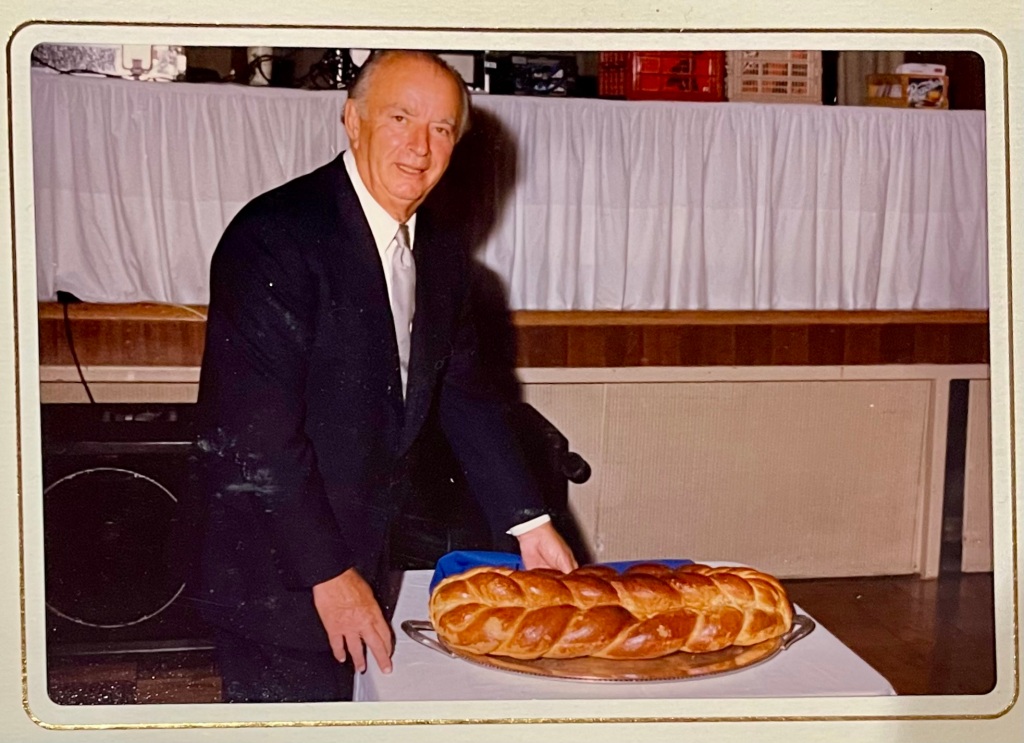
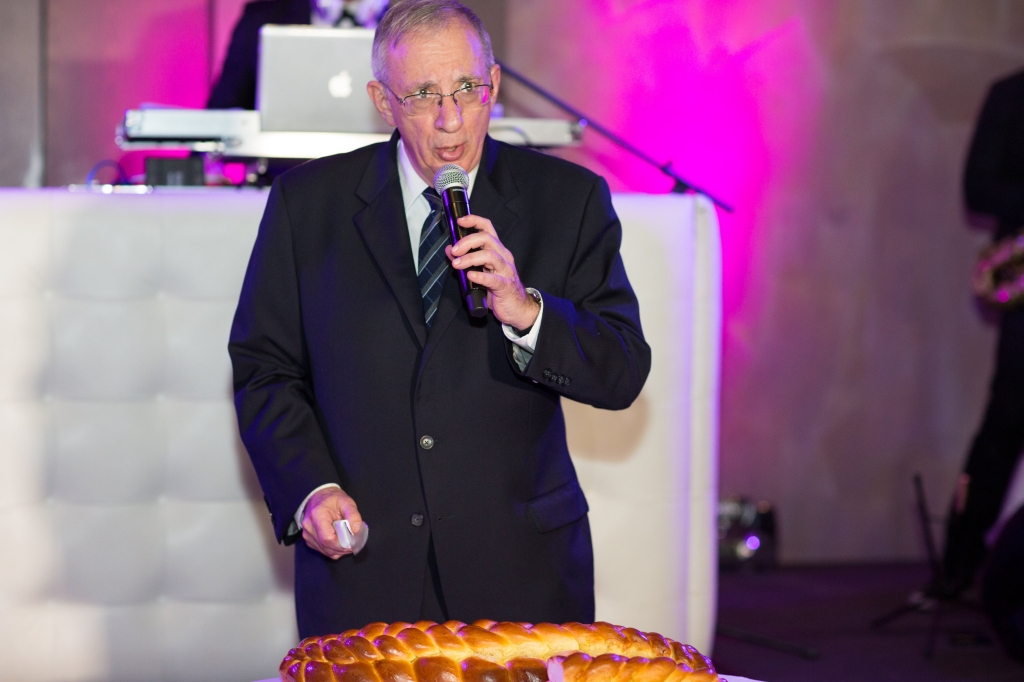
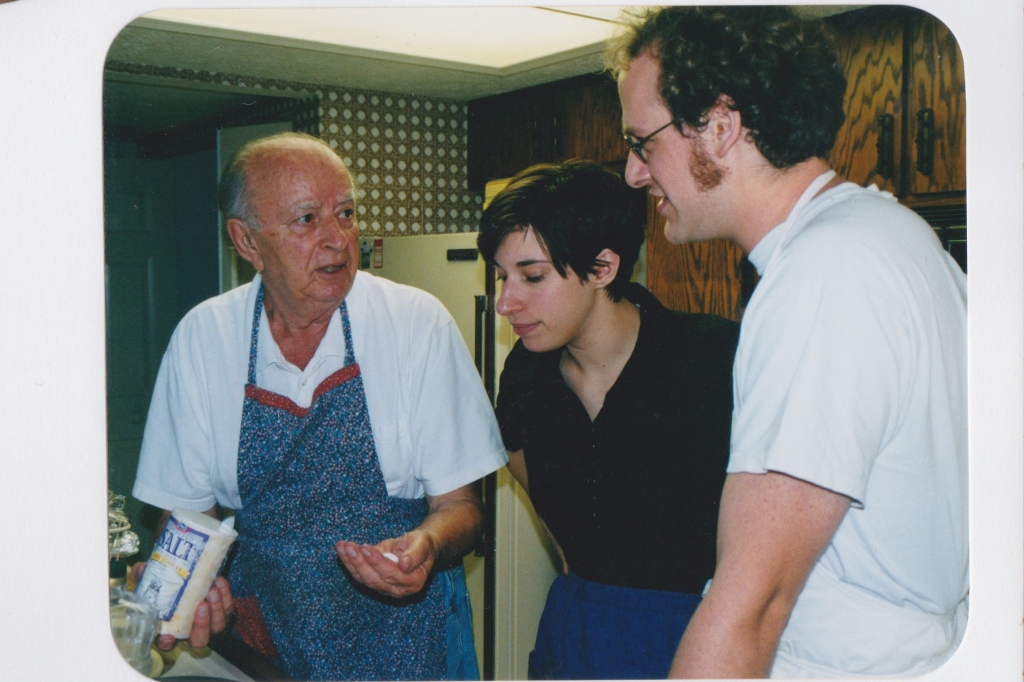
Brown Bag Webinar Series
Spring 2024
Free of charge and open to the public.
Pre-registration is required; full details and registration links below.
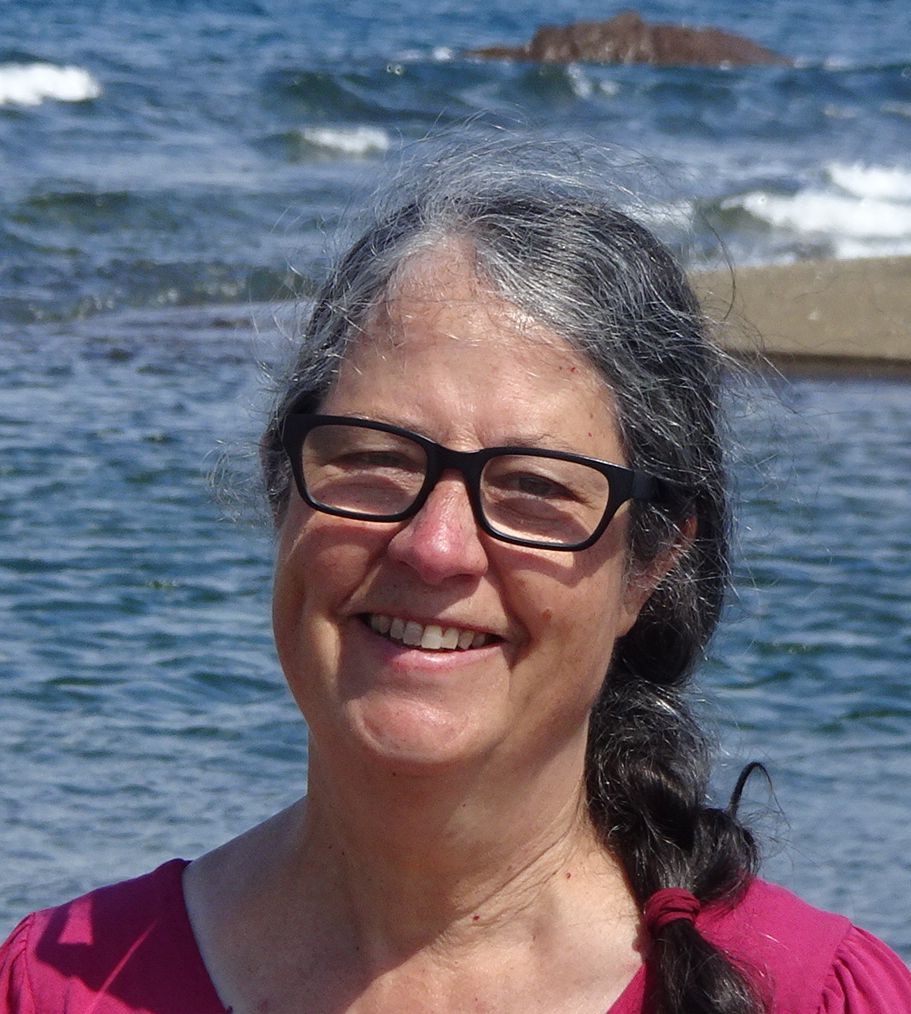
Marjorie Turner Hollman, Author
Wed, Mar 20 @ 4 PM
Do You Want to Take an Easy Walk?
Just in time for you to enjoy the spring season!
Interested in an easy walk? Discover what an easy walk entails with the insight of Marjorie Turner Hollman. She describes it as a path with few obstacles like roots or rocks, mostly flat terrain with stable footing and plenty of captivating sights. Join Marjorie on a virtual tour to various accessible and engaging walking spots in and around Providence. This presentation also covers disability and mobility access.
Media appearances include the ABC news show, Chronicle; Boston’s CBS Channel 4 and the Boston Globe.
Marjorie Turner Hollman is a freelance writer/developmental editor who loves the outdoors. Paralyzed after life-saving brain surgery, she regained her ability to walk with support and now uses hiking poles to help maintain her balance on the trail. She has completed multiple books in the Easy Walks trail guide series. My Liturgy of Easy Walks is her memoir, meditations of learning to live in a changed life. Visit Marjorie’s Amazon
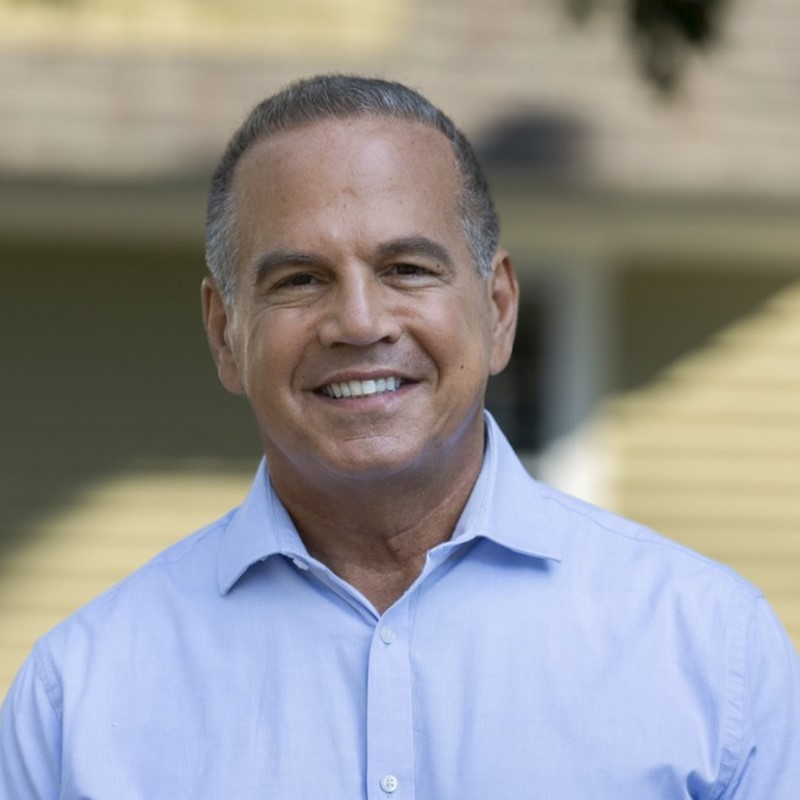
David N. Cicilline
President/CEO Rhode Island Foundation
Wed, Mar 27 @ 4 PM
SPECIAL PRESENTATION
Please join us for this special opportunity to hear from former Congressman David N. Cicilline, President and CEO of the Rhode Island Foundation.
Former Congressman Cicilline will join us to discuss his transition to the Foundation, and lessons learned from his career in public service that can be applied to his work leading one of the oldest and largest community foundations in the country.
David N. Cicilline represented Rhode Island’s first congressional district in the U.S. House of Representatives for 12 years, beginning in 2011. Prior to being elected to Congress, he was mayor of Providence for two terms from 2003 to 2011.
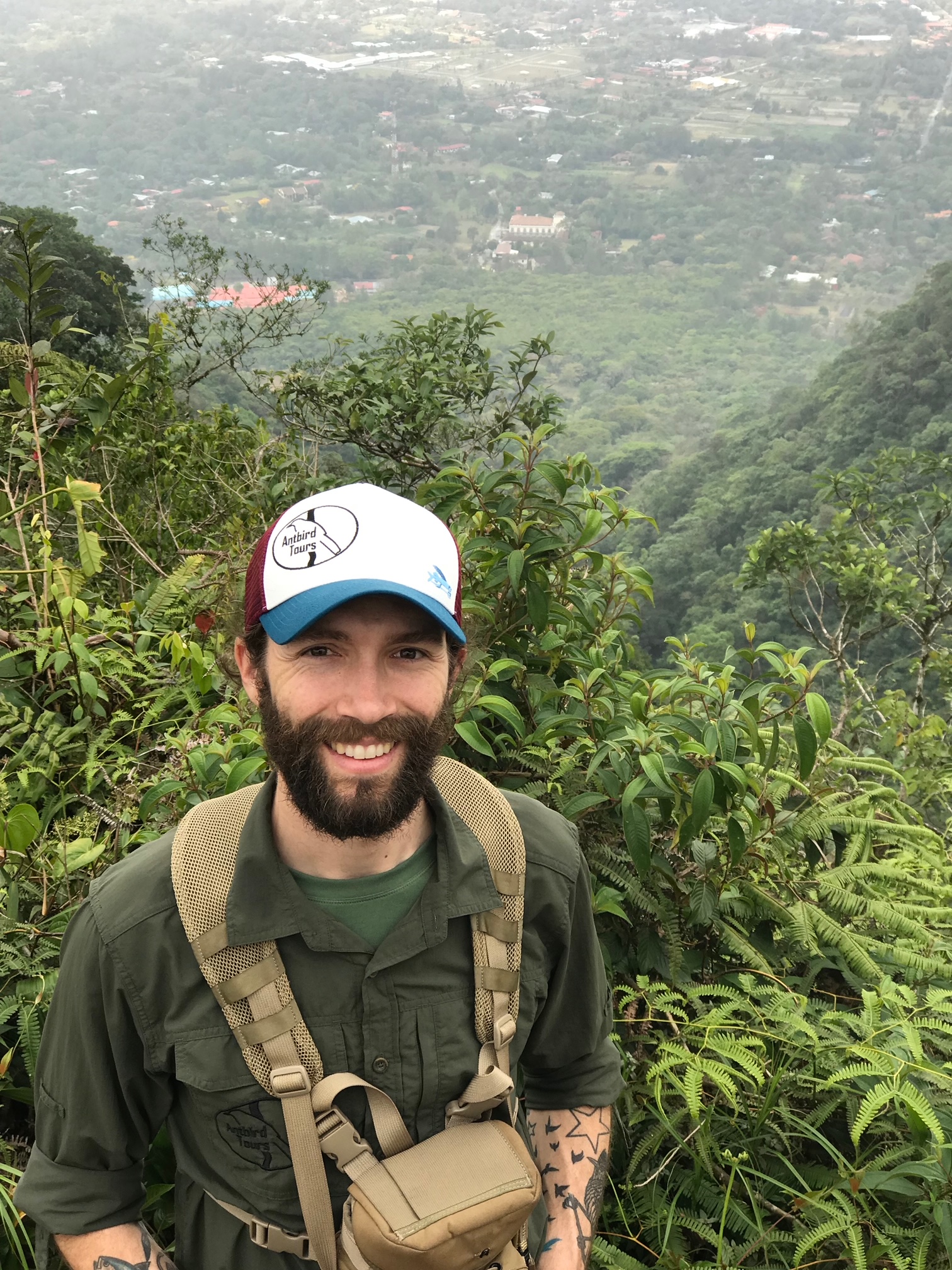
Charles Clarkson, PhD
Director of Avian Research, Audubon Society of Rhode Island
Audubon Society of RI
Thurs, Apr 4 @ 4 PM
Why Birds Matter and What Audubon is Doing to Protect Them
Birds have been evolving on our planet for roughly 1.6 million years. During this period, they have radiated into over 10,000 species and can be found in nearly every habitat that exists. Aside from bringing us great joy as they nest in our backyards, visit our feeders and fill wild spaces, birds provide countless ecosystem services. They pollinate our plants, control pest populations, remove decomposing organic material and spread seeds far and wide, thereby creating new habitats across the globe.
Charles Clarkson will tell us about the amazing things birds do, what we stand to lose in a warming world as many of our avian populations decline rapidly and how Audubon is working to reverse these declines.
Charles Clarkson, PhD, is the Director of Avian Research for the Audubon Society of Rhode Island where he is leading efforts to conserve bird populations across all properties Audubon manages. His work includes establishing a baseline dataset on bird abundance and distribution as well as targeted research on the impacts of pesticides to nesting and migrating birds.
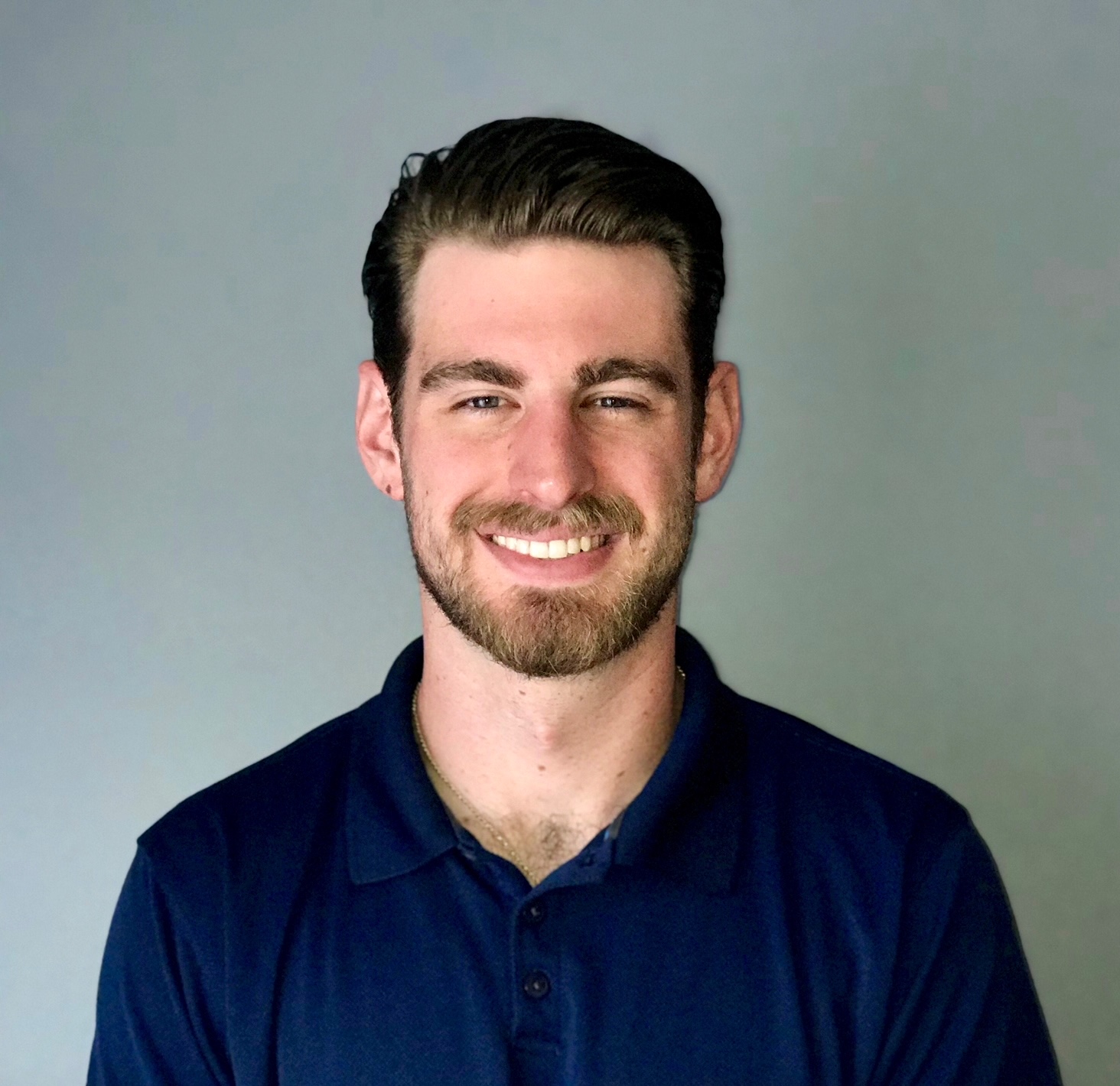
Andrew Starcevic
Peace Corps Regional Recruiter – RI, MA, CT
Office of Volunteer Recruitment and Selection Serving in Namibia
Wed, Apr 17 @ 4 PM
Learn about the Peace Corps
If you’ve ever fantasized as a Senior about what it might be like to stop the world for a while and have the adventure of a lifetime by joining the Peace Corps, or just wondered what it was like for others, here’s a great opportunity to find out and ask questions. Serving in the Peace Corps is a great way to become part of a community overseas, learn a new language, and make a lasting impact.
Join us to learn more about the Peace Corps from a returned Volunteer, Andrew Starcevic, who served in Namibia on the southwestern coast of Africa. You’ll have the opportunity to ask questions about service and gain tips to guide you through the application process.
Peace Corps Regional Recruiter Andrew Starcevic served as a Peace Corps volunteer in Namibia. During his time as a volunteer, he lived in a rural farming community and taught English at the local primary school. Andrew’s favorite memory from service is the time spent playing soccer after school with friends in the host community.

Mon, Apr 29 @ 4 PM
Sigh/Omelas – A live one man show written and performed by Steve Kidd
Director and Resident Actor, Gamm Theatre
Theatre Arts Teacher, Moses Brown School
Steve Kidd drew inspiration for his play from the stories of the young individuals he encountered and guided at Camp AmeriKids, a free summer camp in upstate NY for children living with AIDS/HIV. These stories, filled with themes of love, longing and loss, are intertwined with a short story by renowned sci-fi writer Ursula K. LeGuin, called “The Ones who Walk Away from Omelas.”
Since his first performance of the show in 2001, Steve Kidd has won the Lewis Hine Award in 2008 for dedicated work on behalf of children in need and performed it well over 1,000 times for schools, colleges, friends, interested citizens and anyone who wants to hear it. To him, it is a joy to share these memories and stories of children whose lives were cut short by the HIV virus.

Joe Petteruti
Thurs, May 9 @ 4 PM
LLC Member & Author of A Night She’d Remember: My Grandmother's Experience on the Titanic
The 6th Annual “Celebrate Ourselves”
We at LLC are extraordinary! We are seniors, and here we are still growing – still learning. Some of us do extraordinary things. We sing, we dance, we do arts and crafts or knit, and some of us have stories to tell. And our fellow LLC member, Joe Petteruti, certainly has one.
This is the story of Joe Petteruti’s maternal grandmother, Bertha Mulvihill. An Irish immigrant, she arrived in Rhode Island in 1905. In late 1911, after living and working in Providence for six years, returned to her hometown of Coosan, Ireland to visit her large family. At the last minute, Bertha purchased a third-class steerage ticket for the maiden voyage of the RMS Titanic in April of 1912, from Queenstown, Ireland back to Providence. Viewing it as an exciting adventure, little did she know the tragic fate that awaited.
Joe will recount his grandmother’s experience as a third-class passenger on the "unsinkable" Titanic, sharing her perspective of that unforgettable night, A Night She’d Remember.
Joe Petteruti, a Providence native, has been a member of the Lifelong Learning Collaborative since 2010. He currently serves on three LLC committees and enjoys taking LLC courses. His favorite is the memoir writing class. Joe's book, A Night She’d Remember: My Grandmother's Experience on the Titanic is the story about his maternal grandmother who survived the sinking of the Titanic. His book started in a 2015 memoir writing class as a short highlight. During the pandemic, Joe continued writing and he says it is thanks to his coordinator encouraging him that led to its being published in 2022.
Suggestions for a speaker or topic?
Email [email protected].
From the Memoir Class Fall 2023
Jay
by Beth Armstrong
It was early September, and the high school principal decided to increase school spirit, by having an all-school talent show in a morning assembly in the gym. I had been rehearsing with my chorus, who met daily, for about ten days, which meant we didn’t have much to showcase. However, there was one song we were ready to sing. We stood for the National Anthem, sung by one of my seniors, and sat down in one section of the bleachers. From there we watched a series of mostly mediocre-to-terrible acts. A magician, a juggler, several “air guitar” players in which they pretended to strum and almost destroy a guitar while a recording of a talented artist played. As a performing arts teacher, I cringed when “air guitar” was considered worthy of a talent show.
Sometimes an act was worth sitting through, and to give the teenagers credit, they did settle down and listen when someone presented anything that demonstrated actual talent. We had a great poet that year who was so animated and expressive when reciting his work, that everyone looked forward to his presentation. Eventually, a shy boy named Jason took the stage with an acoustic guitar and a stool. He sat down and played, never looking up from the instrument. After a minute or so, he began to sing. It was an original song No one had ever heard Jason sing, and few had heard him play. He was a boy who kept to himself. Everyone got very quiet. He was good. And so was his song.
I turned to the girls I was sitting next to and asked, “Who is that?”
“Jason. He’s awesome.”
“He sure is. And why, may I ask, is he not in chorus?”
“I don’t know. I really don’t know him very well.”
“Well, go get him.”
Later in the assembly, the chorus took the stage and sang our one song, which was a pop-inspired arrangement of “Bridge Over Troubled Water.” The high school kids liked it. We were, if not a hit, at least accepted.

The girls kept their word and spoke to Jason about chorus class, and the next day, a little late, Jason came into our classroom while we were warming up. He apologized for being late but explained he had been to Guidance to get his schedule changed so he could take the class. I put him in the back row of the baritone section and continued my class.
I had decided to teach the class a song I had recently learned called Yonder Come Day. Its origins are the Gullah-Geechee culture in the Georgia Sea Islands. Thus the “original” version of the song is unknown, and we must rely on arrangers who have researched appropriate performance protocols. Yonder Come Day has three distinct lines, each completely different from the other two, but sung together, form a joyous and rhythmic chant. For singers who are not accustomed to working in a group, singing in harmony parts is quite challenging, and Yonder Come Day is a great way to get folks to sing in what sounds like harmony, but is really three melodies that sound good together. By its very nature, it should be sung many times over, and the ending should be slowed way down. It is in the ending that a soloist is encouraged to improvise some kind of “wail” while the chorus holds an unresolved chord. The director follows the lead of the soloist and holds the choir until the soloist is finished. Thus, there are no two identical performances.
The choir loved Yonder Come Day instantly. I knew this piece would qualify as what I like to call “instant music.” I use such pieces when I think it is important for a group to experience success without too much effort. It bonds them to each other and to the director, to the song, and to the magic that happens in chorus. And with a song like that, it can happen in one high school class period.
Jason was quiet and attentive but showed no affect. He was singing but I couldn’t hear him or any other individual voice. Once we had the three parts solidly in play, I introduced the concept of the ending, which required someone to volunteer to try the improvised solo. This is a delicate moment in a chorus, especially with self-conscious teenagers, especially in September, when they haven’t decided whether they can trust me or their classmates. Improvising a solo is a terrifying prospect for most singers. You need to be able to trust that you are in a safe place.
Jason volunteered.
I said, “Are you sure?” He nodded. So, we started at the beginning, and I put off that ending as long as I thought I could, to build confidence. Finally, looking at the clock and knowing the period would end in a few minutes, I signaled for the held chord from the group and looked at Jason. He was amazing. He improvised a perfect “wail” (in classical music, this would be called a cadenza, but that hardly seems the right word for a Gullah-Geechee song.) He was expressive, appropriate, and totally musical. We ended the song on the perfect in-tune chord, and after a second of silence, the kids cheered – patting him and each other on the back and laughing with the feeling of success. Score one for the teacher. Score one for the shy kid who just found his happy place.
After that day, Jason (who, it turned out, wanted to be called Jay) never missed chorus class. He came early and helped set up chairs or risers or sheet music. Early in October, I mentioned to the class that the deadline for applying to audition for New Hampshire Jazz All-State was approaching. He came to me after class and asked what Jazz All-State was. I explained that there were a small number of high school singers in the state who really enjoyed vocal jazz, so in addition to jazz bands, the state music educators had expanded the festival to include vocalists. But it is a small festival, I explained, and only a few kids get in – the chorus might be about 20 kids from the whole state. He wanted an audition form to take home to his parents. I was a bit concerned, not about his musicianship, but his seeming inability to connect to the other students. He was still painfully shy and almost always quiet. The Jazz All State chorus is very small and a little clique-y. I wondered if they would accept Jay.
Jay auditioned for Jazz All-State, which included a mandatory scat solo performed over a recording of a jazz rhythm section (piano, bass and drums). He had to sing – solo - Gershwin’s I Got Rhythm and after the first verse, scat another sixteen bars. Scatting is improvising on neutral syllables like “sha-be-da” and “doo-bee-doo-bee” and “wee-ahh,” whatever occurs to the singer. It is a sophisticated skill, and it is rare for a high school student to do it well. Not only did Jay get into Jazz All-State, but they gave him one of the coveted scat solos in the concert. He was terrific. His parents were sitting proudly in the front row.
Jay went on to have a wonderful year with us. I gave him all the opportunities I could without letting him overshadow the other kids, many of whom were also very talented. Unfortunately for me, this was Jay’s senior year, so I only had him for about ten months. He told me in May that he had gotten into Keene State College in Keene, NH, where he had decided to major in music. He wanted to be a composer, he told me.
I attended the high school graduation ceremony that year. It was held outdoors in front of the school, on a hot June day where we sat on white plastic folding chairs that felt as if they were slowly sinking into the lawn. The chorus seniors sang a farewell song, and the valedictorian made a predictable but charming speech. The principal was emotional as always, and the senior class was ebullient. It was a good day. As I was walking toward my car after the ceremony ended, an unfamiliar woman approached me. She told me her name and that she was Jay’s stepmother. She was lovely.
“I wonder if you know Jay’s story,” she began.
“No, he doesn’t talk about himself much.”
“Well, when Jay and his older sister were children – Jay was only five – his mother died of cancer, and his dad had to raise the two kids alone until about two years ago when he married me. It’s been hard on their dad. Jay’s sister was seven when they lost their mother, and she immediately took on the role of housewife. She cooked dinners and cleaned the kitchen and packed lunches for herself and her little brother. She was amazing and so mature, and we worried – we still worry – that she lost her childhood. She almost never cried or complained or even spoke of her beloved mom.
“Jay, on the other hand, went almost completely silent. He never spoke of his mother, either, and was obedient, but lost interest in friends. He came home after school and went to his room and played with toys, but soon, his interest was in playing his guitar. He practiced constantly but he didn’t play for us, or anyone. He didn’t want to go to church anymore or to camp, or to play sports with the other kids in the neighborhood. He sort of folded up inside himself. He has always done his schoolwork and gets good grades, but until this year, he never got involved in anything.
 “And then he tried out for Jazz All-State. I can’t tell you what that meant to him, and to us. He talked all the way home from the festival and started bringing his guitar downstairs to play new songs for us. He shared the poetry he was writing for lyrics, and we were amazed at how good they were! He has made friends – I should say re-made friends – with a boy on our street and they shoot basketballs in our garage hoop after school. He is excited about college. He is a new person. I want you to know how your class changed our son’s life.”
“And then he tried out for Jazz All-State. I can’t tell you what that meant to him, and to us. He talked all the way home from the festival and started bringing his guitar downstairs to play new songs for us. He shared the poetry he was writing for lyrics, and we were amazed at how good they were! He has made friends – I should say re-made friends – with a boy on our street and they shoot basketballs in our garage hoop after school. He is excited about college. He is a new person. I want you to know how your class changed our son’s life.”
The magic of group singing. I am a believer.
And I think of Jay every time I teach Yonder Come Day to a group. Which is pretty often.
The Culture Corner
PROVIDENCE PUBLIC LIBRARY PRESENTS
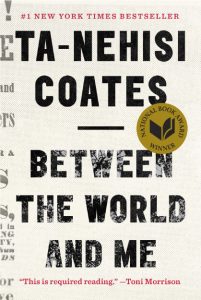 This month the Connecting Stories Book Club will discuss Between the World and Me by Ta-Nehisi Coates.
This month the Connecting Stories Book Club will discuss Between the World and Me by Ta-Nehisi Coates.
The book's themes of familial relationship and the African-American experience resonate seamlessly with Fences, the August Wilson play upcoming at Trinity Rep, March 21 – April 28.
Join us at the Providence Public Library at one of our discussion sessions on March 19 and 20.
The book's themes of familial relationship and the African-American experience resonate seamlessly with Fences, the August Wilson play upcoming at Trinity Rep, March 21 – April 28.
Join us at the Providence Public Library at one of our discussion sessions on March 19 and 20.
Dorcas International Institute of Rhode Island
Community Conversation: Insights into Immigration

Please join us at our upcoming Community Conversation virtual event--Insights into Immigration where we'll provide a look into the growing need for our immigration and citizenship services; what unaccompanied youth face during their journey; misconceptions of an open vs. closed border; the paths to citizenship; what the future holds for immigration; and more! You'll hear from Dorcas International legal experts for an insightful look into immigration issues here in Rhode Island, at the border and overall.
Dorcas International Virtual Event
Insights into Immigration
Tuesday, March 26, 2024
5:30-6:30 PM
Register now.
Written on the Landscape: The Sowams Heritage Area Project Hosts the Next Round of Community Conversations
The Sowams Heritage Area Project invites members of the community to participate in a community conversation to discuss the significance of Sowams, the ancestral homeland of the Massasoit Ousamequin who welcomed the Pilgrims in 1621, and the extraordinary array of resources that can be found on its landscape.
Free to the public, the conversation will be held twice: Tuesday, March 26, 2024, at 3:30pm at the Seekonk Public Library, 410 Newman Avenue, Seekonk, MA and Wednesday, March 27, 2024, at 7:00pm at Mt. Hope Farm, 250 Metacom Avenue, Bristol, RI. Seats can be reserved online at Sowams.org/community-conversations-march-2024/.
